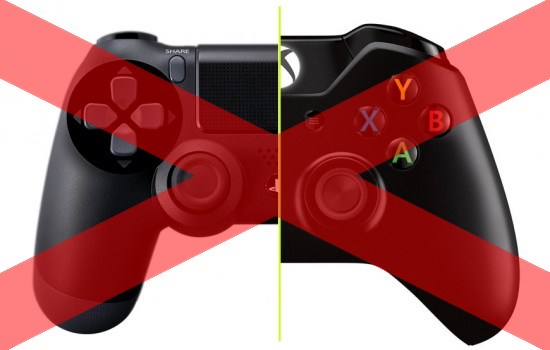The GamerGate controversy, a politically charged backlash against gaming media bodies and online activists, is reaching critical mass today. The conflict arose when certain indie game developers were found to be personally and financially involved with journalists from gaming news websites, prompting a backlash due to a perceived bias.
In other words, the gaming journalism community has been called out, finally, after what seems like years of questionable, gray area conduct. But who could blame them? There was never any regulation and with regards to ethics online, individual journalists have, until now, been able to do what they want in the ‘wild west’ environment of the internet.
Following the discovery of these personal and financial relationships between media and developer, several game sites have changed their tune, opting to be transparent about the money developers receive from journalist contributors. The issue of fraternisation between those involved was understandably steered clear from, as it was a personal issue so it wasn’t appropriate for media heads to intervene. But hopefully a lesson has been learned.

Meanwhile, GamerGate’s second front relates to some of the scathing articles written by gaming journalists, on the hot button subject of feminism. Let’s get one fact straight here. If anyone online makes a post about feminism, or anything that promotes women and simultaneously highlights perceived misdemeanours of men, boom, instant pageviews. There’s nothing particularly wrong about this, or the core values of feminism itself, but still it’s as easy as that.
SEE ALSO: Destiny Allows Free Upgrade to Next Gen
Journalism sites, most prominently but not limited to the Gawker group, have taken advantage of the hype around feminism time and time again, and a lot of the criticism that has been leveled at them for it. Most commonly, gamers are angry at what they see as double standards in gaming related articles which seem to promote the viewpoint that women can do no wrong and should be championed, whilst men are ‘misogynistic pigs’ who should change their evil ways (these are frequently pointed out in deconstructions of articles).
Another big factor is VLogger Anita Sarkeesian, who has attracted some of the most intense harassment in the history of the internet for her ‘Feminist Frequency’ series, which charts what Sarkeesian describes as ‘misogynistic tropes in video games’. The level of harassment forced her out of her home due to apparent ‘death threats’. This childish behaviour is unacceptable, and is one of the reasons that GamerGate supporters are not taken seriously enough.

However, several legitimate criticisms of Sarkeesian exist, namely her receipt of Kickstarter funds far beyond her original target due to the excessive hype around feminism mentioned earlier, which now are unaccounted for. Sarkeesian has made over $150,000 disappear, and has not explained in detail where the money has gone, which some GamerGate supporters see as an unethical violation of trust between her and her financial backers.
SEE ALSO: Ikea Trolls Top Tech Brands with New ‘BookBook’ Promo
GamerGate supporters have leveled two very damning accusations at Sarkeesian. Namely that first and foremost, she has admitted that she is not a gamer, doesn’t like video games, and is only criticising them as a form of ‘social justice’, a term a lot of internet-goers are becoming wary of due to the insensitive behaviour of those who use it. GamerGate supporters say that many of the things Sarkeesian highlights as ‘misogyny’ in her videos can be attributed to her own ignorance of games or limited understanding of the context in which the content is displaued.
Secondly, criticisms that Sarkeesian is a fraud are becoming ever more common, since she neglected to make the videos for the series which were promised to donators, which of course meant that freebie DVDs as donation incentives were never sent out. She has declined to comment on this many times. This, coupled with the missing $150,000 seems, to some, to be evidence of a scam piggybacking on the hype over feminism.
Of course, female gamers are an incredibly large group in the industry. Whilst people like Anita Sarkeesian claim games are ‘sexist against women’, girls and women still make up a massive percentage of those who play games, 47% of players are female, and 48% of frequent buyers of games are female. Women have been represented in games for a long time, in titles like Metroid and Tomb Raider, although they definitely weren’t the first.
SEE ALSO: Minecraft 1.8 Update Released
Female gamers do have a right to content which isn’t openly offensive to them, which doesn’t demean them unashamedly. This is everyone’s right in fact, not just women. However, at times the concept of what is demeaning and what isn’t differs depending on who you talk to.
If you’re a female gamer and you are one of those who finds certain aspects of games demeaning, go right ahead and join up with the rest of your peers, you have every right to do so. If on the other hand you’re one of those female gamers who either doesn’t care or doesn’t see it as a problem, you’re not betraying anyone by not joining up with the feminist crowd.
Everyone is entitled to their own opinion and to stand up for what they believe in. This is one of the fundamental human rights that people in the western world enjoy, and for the most part take for granted. Please go forth and enjoy your excessive freedoms, as some are not quite so lucky.
Sources:
Kotaku – A brief note about the continued discussion about Kotaku‘s approach to reporting
The ESA – Gaming Statistics 2012
Kickstarter – Tropes Vs. Women Fundraiser

